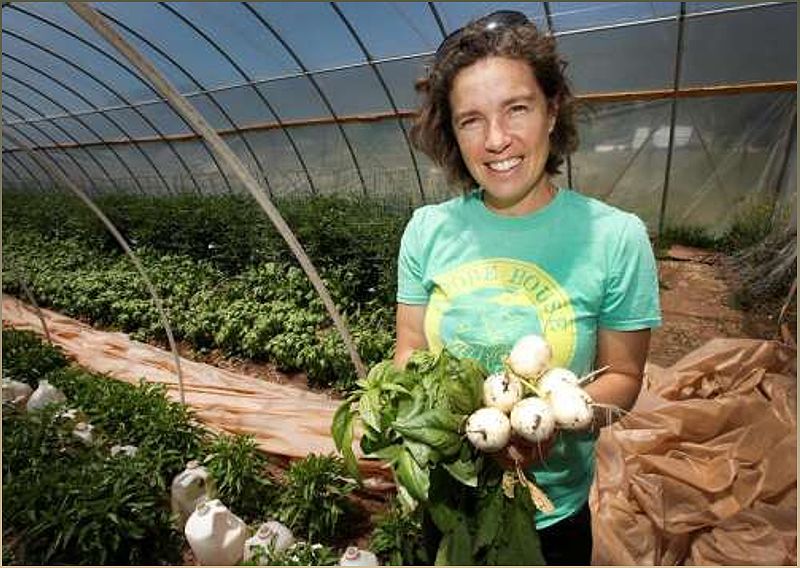Durango organic farmer Linley Dixon is heading to Washington to advocate for eco-friendly practices in organic farming, specifically addressing concerns about the certification of Soilless Hydroponic Container Operations (SHCOs) as organic. She aims to protect the integrity of organic farming and promote sustainable agricultural practices.
Advocating for Organic Integrity in Washington
Durango organic farmer Linley Dixon is heading to Washington to advocate for eco-friendly practices in organic farming, specifically addressing concerns about the certification of Soilless Hydroponic Container Operations (SHCOs) as organic. With her deep commitment to upholding the integrity of organic farming, Dixon aims to ensure that the U.S. Department of Agriculture’s (USDA) organic farming regulations align with climate-smart principles.

( Credit to: The-journal )
As the reauthorization of the Farm Bill approaches this year, Dixon is determined to protect the true spirit of organic farming and promote sustainable agricultural practices. With her extensive knowledge and experience in plant and soil science, she brings a wealth of expertise to her advocacy efforts.
Challenging the Certification of Soilless Hydroponic Container Operations
Dixon’s primary concern lies with the USDA’s National Organic Program and its certification of Soilless Hydroponic Container Operations (SHCOs) as organic. She firmly believes that this certification violates the Organic Foods Production Act and undermines the principles of organic farming.
One of Dixon’s main contentions is the lack of established standards for SHCOs. Organic farmers prioritize recycling through composting local waste, while hydroponic farms heavily rely on fertilizers with a significant climate impact. Instead of sequestering carbon in the soil, hydroponic farms consume large amounts of fossil fuels to create fertilizers, contradicting the fundamental principles of organic farming.
Upholding Organic Integrity
To address these concerns, Dixon, along with members of the Organic Farmers Association, is striving to ensure that organic integrity is upheld. They argue that allowing the organic certification of both soil-based and hydroponic production of the same crops and products fails to meet the consistent standards outlined in the Organic Foods Protection Act. Hydroponic operations do not comply with the act’s requirements for an organic plan, including crop rotations and other essential practices.
Driscoll’s, a California-based seller of berries, is highlighted by Dixon as a significant contributor to the problem. With about 70% of the organic berry market, Driscoll’s has been able to influence the certification process to align with their industrial production practices. This monopoly not only threatens the integrity of the organic market but also poses a risk to small organic growers.
Advocating for Healthy Soils and Pastures
As Dixon prepares to meet with representatives in the U.S. House and Senate, her main objective is to ensure that organic crops are grown in healthy soils and that organic livestock is raised on healthy pastures. By urging lawmakers to enforce existing regulations and uphold the true spirit of organic farming, she aims to protect small-scale organic growers and promote sustainable agricultural practices.
The reauthorization of the Farm Bill provides a crucial opportunity to address these concerns and strengthen the organic farming sector. Dixon’s advocacy efforts in Washington serve as a reminder that organic integrity is not just a buzzword but a vital principle that should be upheld to protect the health of our environment and the future of sustainable farming.
